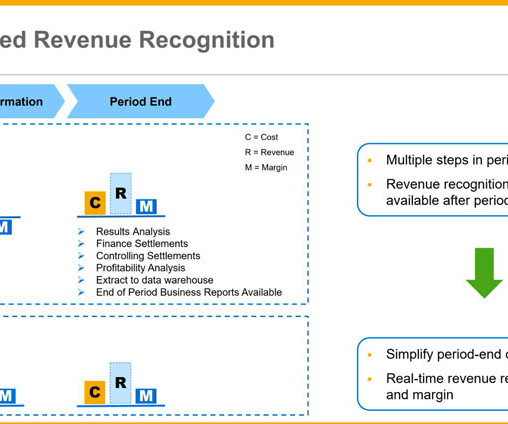Integrating RevRec and Cost Accounting in the SAP Public Cloud
Bramasol
AUGUST 31, 2023
Over the past eight years, many episodes in this blog series have focused on revenue recognition and how SAP solutions such as Revenue Accounting and Reporting (RAR) have provided a robust foundation for compliance with ASC 606 and IFRS 15. This provides the basis for real-time matching of revenue and cost.














Let's personalize your content